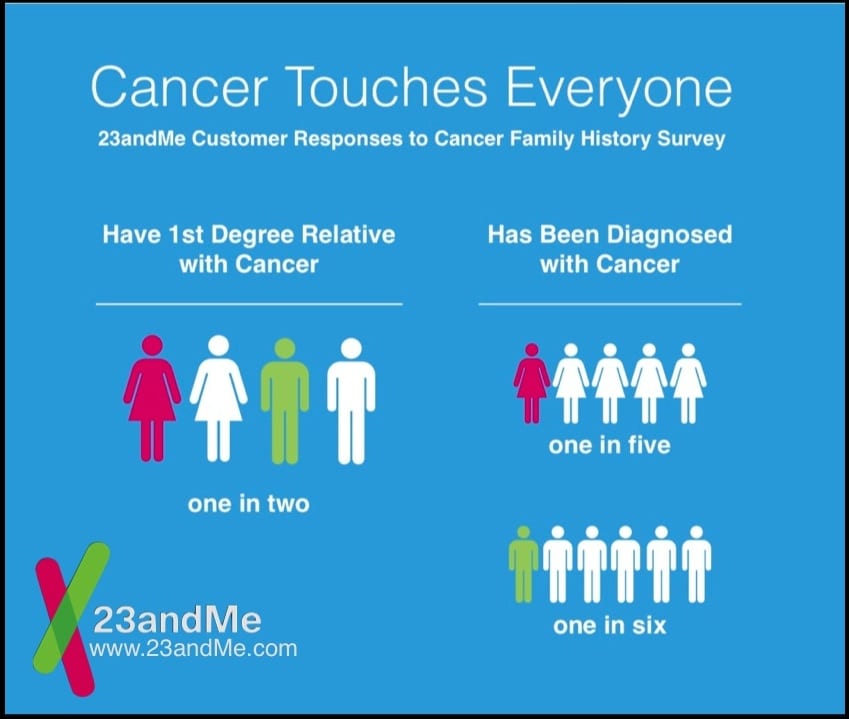
23andMe is passionate about fighting cancer. We’re researching specific forms of cancer and treatments (see sidebar) and also learning more generally about cancer through our Cancer Family History survey (men’s version and women’s version). Personal experiences have the potential to fuel important research discoveries and by taking this survey customers can tell us how cancer has touched their lives.
May is National Cancer Research Awareness Month
You can contribute to research on cancer by taking the Cancer Family History survey (men’s version and women’s version) and if eligible, participating in the following studies:
– Do you have sarcoma, or know someone who does? Learn how to join our Sarcoma research community today.
– Do you have an MPN, or know someone who does? Learn how to join our MPN research initiative today.
– If you or someone you know has been diagnosed with metastatic breast cancer, check out our innovative online study with Genentech.
Within just 2 months of launching the survey over 20,000 customers (9,700 women and 11,000 men) have completed it! Although we’ll likely need more data to be able to find interesting genetic and non-genetic associations for different types of cancer, what people are already telling us is very interesting:
- Cancer is relatively common in the 23andMe database
About 20% of women and 16% of men had a diagnosis of some form of cancer (this included relatively common non-melanoma skin cancers). These numbers are higher than the national adult average of 8.5%, which may reflect the fact that 23andMe customers include individuals enrolled in our Sarcoma, MPN and Metastatic breast Cancer research communities. People with a strong family history of cancer might also be more interested in undergoing genetic testing and taking this survey.
- Approximately 50% have a 1st degree relative with cancer
Just over half of respondents have a mother, father, child or sibling who had been diagnosed with cancer.
- Many have parents who suffered from breast or prostate cancer
Nearly 10% of respondents (combined male and female) have a mother with breast cancer while just over 1% had a father with prostate cancer.



